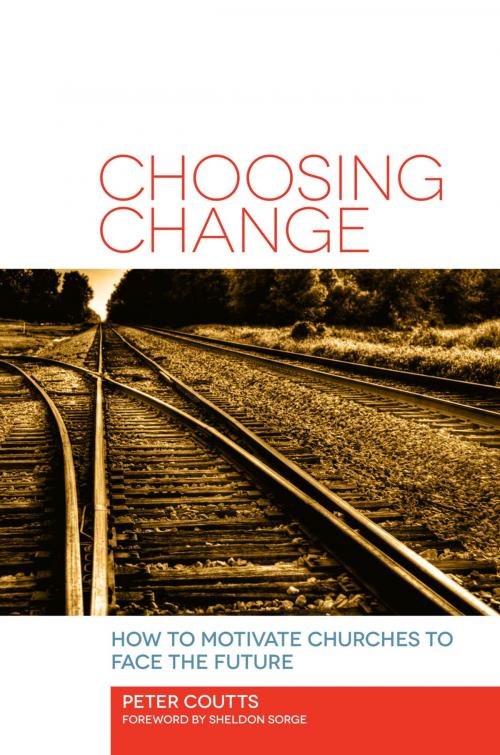Choosing Change
How to Motivate Churches to Face the Future
Nonfiction, Religion & Spirituality, Christianity| Author: | Peter Coutts | ISBN: | 9781566994828 |
| Publisher: | Rowman & Littlefield Publishers | Publication: | August 5, 2013 |
| Imprint: | Rowman & Littlefield Publishers | Language: | English |
| Author: | Peter Coutts |
| ISBN: | 9781566994828 |
| Publisher: | Rowman & Littlefield Publishers |
| Publication: | August 5, 2013 |
| Imprint: | Rowman & Littlefield Publishers |
| Language: | English |
Humans have been choice-makers since the days when hunter-gatherers had to decide when to hunt and what to gather. Making choices is what humans do. But individuals feel more personal autonomy and power to choose today than ever before in human history. In Choosing Change, author Peter Coutts acknowledges that clergy today recognize the impact our individualistic culture of choice is having on congregations. But Coutts also points out that many leaders do not think about motivation. For them, encouraging change is about selling their congregation on a new idea, governed by the assumption that a better idea should win the day. Wide experience in the church demonstrates that this approach often doesn't work and leaves many congregational leaders demoralized. Leaders see the need for change in their congregation, and they earnestly want to help their congregation to change. But the approach to leadership they learned, which perhaps worked better in days gone by, is no longer working. Leaders are in the motivation business, argues Coutts. Choosing Change provides an overview of current thinking from the field of motivation psychology. In the first half of the book, Coutts explores theories, ideas, and terms that are most pertinent for leaders who desire to encourage congregational change. The second half of the book offers detailed guidance for congregational leaders who want to be motivational leaders.
Humans have been choice-makers since the days when hunter-gatherers had to decide when to hunt and what to gather. Making choices is what humans do. But individuals feel more personal autonomy and power to choose today than ever before in human history. In Choosing Change, author Peter Coutts acknowledges that clergy today recognize the impact our individualistic culture of choice is having on congregations. But Coutts also points out that many leaders do not think about motivation. For them, encouraging change is about selling their congregation on a new idea, governed by the assumption that a better idea should win the day. Wide experience in the church demonstrates that this approach often doesn't work and leaves many congregational leaders demoralized. Leaders see the need for change in their congregation, and they earnestly want to help their congregation to change. But the approach to leadership they learned, which perhaps worked better in days gone by, is no longer working. Leaders are in the motivation business, argues Coutts. Choosing Change provides an overview of current thinking from the field of motivation psychology. In the first half of the book, Coutts explores theories, ideas, and terms that are most pertinent for leaders who desire to encourage congregational change. The second half of the book offers detailed guidance for congregational leaders who want to be motivational leaders.















